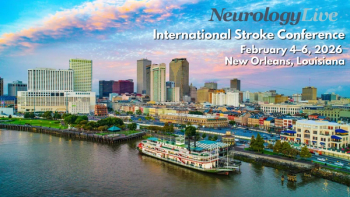
Statins After Ischemic Stroke
Statins before and after an ischemic stroke may improve functional outcomes and survival, but the association is not exactly straightforward.
Using statins before or soon after an acute ischemic stroke is not linked to early hemorrhagic complications and does not seem to affect the safety of thrombolysis, according to results from a study published online in Neurology. The study also found that starting statins soon after an acute ischemic stroke may decrease 90-day mortality.1
“Taken together, prior statin use was not associated with early poststroke hemorrhagic complications. There was no evidence of excess risk of sICH [acute symptomatic intracerebral hemorrhage] in the setting of treatment with IV thrombolysis, which supports overall safety of thrombolysis among prevalent statin users,” wrote first author Jan Friedrich Scheitz, MD, from the Center for Stroke Research, Berlin, and colleagues.
“In addition, our data reassure on the safety of early initiation of statin treatment after stroke with regard to postacute hemorrhagic strokes and support an association of statin treatment with lower 90-day mortality. Whether early poststroke initiation of statins improves outcomes and reduces mortality has yet to be proven in RCT settings,” they added.
Several studies have suggested that exposure to statins before and after an ischemic stroke may improve functional outcomes and survival. However, the association is not exactly straightforward. Findings from the Stroke Prevention by Aggressive Reduction in Cholesterol Levels (SPARCL) trial suggested higher rates of ICH among patients with prior stroke who were randomized to statins.2 Other studies have suggested a trend toward increased rates of ICH among statin users on IV thrombolysis.3,4 On the other hand, a recent systematic review and metanalysis that included almost 250,000 patients found no significantly increased risk of ICH with statin use.5 And a pooled observational study of 4012 post-stroke patients on IV thrombolysis found no significant link between ICH and statin use, after adjusting for several confounders.3
The current study included information from 8535 patients (mean age 70, 54% male, median baseline NIH Stroke Scale Score 13). Researchers used data from the Virtual International Stroke Trials Archive, which houses international data from 28,130 acute stroke patients involved in randomized controlled clinical trials. They used propensity score matching to account for differences in baseline characteristics between patients exposed to statins and those unexposed. Then they compared patients who were taking statins before an acute ischemic stroke, to those who initiated statin treatment within three days of an acute ischemic stroke, and to those without exposure to statins.
Key Results:
• Prior statin use:
♦ Acute symptomatic ICH: No significant association (adjusted odds ratio [OR] 1.33, 95% confidence interval [CI] 0.83–2.14)
♦ Thrombolytics: No significantly increased risk of symptomatic ICH (no prior statin, 4.1%; adjusted OR 2.04, 95% CI 0.91–2.55; prior statin 6.0%, OR 3.12, 95% CI 1.08–6.16)
♦ 90-day mortality: Nonsignificantly lower compared to patients unexposed to statins (adjusted HR 0.84, 95% CI 0.70–1.00)
• New initiation of statins:
♦ Postacute ICH: No significant association over 90 days of follow-up (adjusted hazard ratio [HR] 1.60, 95% CI 0.70–3.65).
♦ 90-day mortality: Significantly lower compared to patients unexposed to statins (HR 0.67, 95% CI 0.46–0.97)
The authors noted that all unadjusted point estimates suggested increased risk of acute symptomatic ICH and past statin use. These associations decreased and lost statistical significance after adjusting for patient-related factors. That suggests that the unadjusted findings may have been due to risk factors for ICH often found in patients on statins.
In a linked editorial,6 Larry B Goldstein, MD (University of Kentucky, Lexington, KY) and Paul J Nederkoorn, MD, PhD (Academic Medical Center, Amsterdam, The Netherlands), pointed out that the “majority of analyses” also suggest possible increased risk of ICH in post-stroke patients exposed to statins. After adjusting for potential confounders and other factors, though, the relationship between statins and post-stroke hemorrhagic complications becomes nonsignificant in most studies.
While acknowledging the possibility of a real but small increased risk of ICH among poststroke patients on statins, they conclude: “[T]he results of the study by Scheitz et al. combined with the other available analyses are reassuring. As found in SPARCL, the benefit of statins in reducing stroke and other cardiovascular events in this high-risk population likely outweighs the risk of brain hemorrhage.”
Take-home Points
• A retrospective study found no significantly increased ICH risk in over 8000 poststroke patients exposed to statins.
• The study also found no evidence to suggest statins affect the safety of thrombolytics, and that statins may improve 90-day mortality.
• Unadjusted results pointed to possible increased risk of ICH among poststroke patients on statins, but the significance disappeared after adjusting for multiple confounders.
• In a linked editorial, experts write that the evidence to date suggests the benefits of statins in decreasing stroke and CV events outweighs the risk of ICH.
References:
1. Scheitz JF, et al.
2. Vergouwen MD, et al.
3. Engelter ST, et al.
4. Scheitz JF, et al.
5. Hackam DG, et al.
6. Goldstein LB, Nederkoorn PJ.
Newsletter
Keep your finger on the pulse of neurology—subscribe to NeurologyLive for expert interviews, new data, and breakthrough treatment updates.








